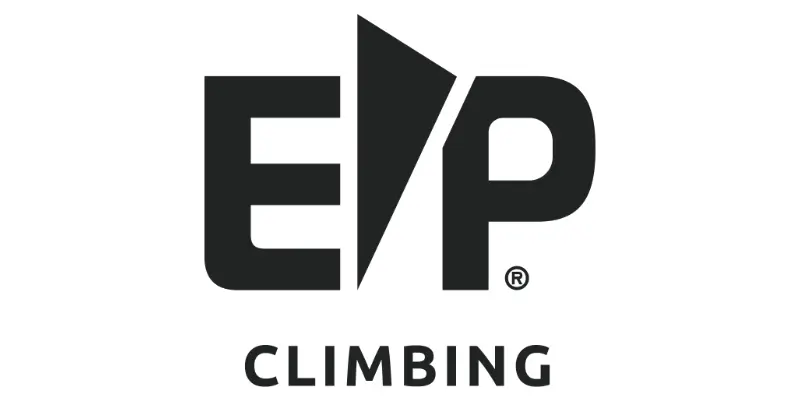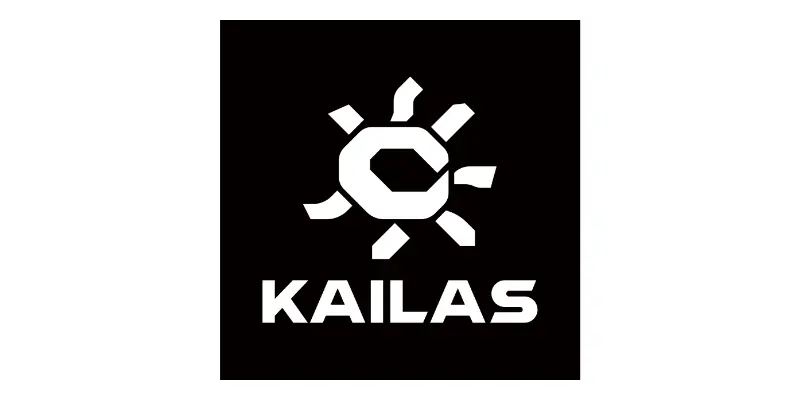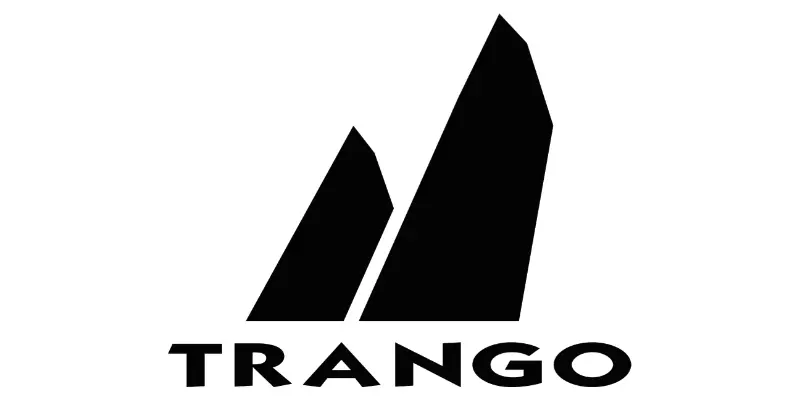The Syrian born climber is also the first member of the IFSC Refugee Team
Whenever I do these conversations, there is an element of knowledge or experience I can find with the person I am talking to. For this one, I have nothing! Afraa Mohammad is a refugee, something I have absolutely no concept of, so this conversation will have Afraa take the lead even more than usual, and rightly so.
As a bit of quick background, Afraa has now officially become a member of the IOC Olympic refugee programme, and the first ever member of the IFSC Refugee Team. She is 26, originally from Syria, and now living in France. Apart from that, both you and I will get to know Afraa together…so let’s get started.
“I was born in Syria as a Palestinian refugee, which I'm not sure if you're aware of what that means, but it basically means that I don't have a nationality. It means that I was born a refugee. I've always had travel documents, but I don't have either of those nationalities.”
Afraa may know now that she is a refugee, but she actually found this out through sport.
“I started off as a gymnast when I was really young. I did it for six years and then it was the time to join the national team for the Olympics in gymnastics when I was around 10 or 11, and this is where I learned that being stateless means that I don't get to do sports at a competition level.
“I was thrown out of the team even though I was a national champion for multiple years. Once they learned that they couldn't send me to the Olympics and that I couldn't compete internationally there was no point of me being in their team. I stopped doing sports and then I turned to dancing.”
From my very simple explanation of what I think a refugee is, it’s someone who has fled their home because of a fear for their safety. But what does it mean specifically in Afraa’s case?
“When I got to 18, this is was the most dangerous it got for me in Syria. Because I could be taken at any time. It’s the time when I started getting threats.”
But why the threats?
“I was blacklisted.It means that you're basically labelled as a terrorist and you can get taken to prison for different reasons, none of them true, but anyone who has participated in the Syrian revolution is put on the blacklist.
“I participated against the regime. I was someone who would provide first aid.
“Talking against the regime would get you blacklisted. Talking with someone who is against the regime would get you blacklisted. For me it was both of these two things. It was the fact that I hung out with a bunch of people whose parents were held in the regimes prisons for being politically against it, and also the fact that I had been a part of.”
Being against a regime gets you onto this list, but how does that translate to being fearful for your life on a day to day basis?
“Every time you go through a military barrier, they could check your ID and see if your blacklisted or not. The only way to get away with it was if they don't check your ID, and for my whole life in Syria I would get away with it because I had a baby face and they would always think that I'm was too young even though I was blacklisted for four years. I was blacklisted since the age of 15.”
A big part of being a refugee is getting out of the situation you are in, and for Afraa this came in the form of education.
“At the beginning of 2018 I came to France on a scholarship to study just because it was the only way to get me out of Syria. It was even harder for Palestinians to leave Syria than Syrians. I then applied for political asylum here, which basically means I'm a double refugee. I was born a refugee and now I'm also a political refugee in France.”
The scholarship that Afraa received was from a French association that partnered with universities, but as someone who doesn’t speak French, why choose that country?
“Because of the threats. I applied to every scholarship I could find and I accepted the first one I got. At the beginning I thought I would go to an English speaking country because just because I didn't speak any word in French.
But France was the first one that responded, and it actually worked really quickly. I applied around May and by end of October, I was in France, so it was really quick and that's why I picked it. At that stage of my life it was more about my own safety than my choices of where I wanted to go. It was who would take me first. That was my criteria.”
Since arriving in France, Afraa has done a Bachelors and a Masters degree in Architecture as well as working in architecture, a busy time for anyone. After becoming part of the Olympic Refugee programme it means that sport as a profession can take more of a front seat. But let’s go back to the start and find out how Afraa found climbing.
“I got into climbing three years ago. A friend introduced me to it because I couldn't do any other sport after COVID. Gymnastics was my sport, but there's no way that you can do gymnastics the same way you can with climbing, You can’t just walk into a gymnastic club and train, it doesn't work like this. Also you need money, which I didn't have at the time. Climbing just seemed more accessible.”
Climbing is accessible and allows you to interact with so many different people from different backgrounds and cultures on the same level. Go to a gym in the UK and you could bump into the Olympic gold medallist. There’s not many other sports like that.
I very much feel that sport in general has huge mental benefits as well as physical, and Afraa just confirms this for me.
“I've always been someone who loved competitions, but when I started climbing, I wasn't in it for that, because again, I didn't know I could do it. But when I started there was a huge part that was completely personal. I realised that climbing would stop my panic attacks.
I used to have a lot of panic attacks and PTSD (post traumatic stress disorder) related episodes from when I had lived in Syria. Then I realised that whenever I go climbing it would stop. And so for the first year of me climbing I would go to the gym every single day, it wasn't because I wanted to become strong, It was because it was something that was giving me peace.
“After, of course, I was going to the gym every day I noticed I started to get stronger and started to change because I like training now that I no longer have that many psychological problems.”
Now loving the training, but only starting a few years ago, how is climbing actually going for Afraa?
“I've seen it improve quite a lot actually, which has encouraged me. On the walls I realised that my experience in gymnastics and dancing has been helping me. It doesn't feel like I'm starting sports from zero. Of course I have a lot of like work to do. I have a huge amount of work to do still. But it doesn't feel like my body is not familiar with sports and movements.”
And the immediate future of climbing for Afraa is looking even brighter now she can focus a bit more of her time to the sport and pursue it in a more focused way.
“I've finished my work contract last month and for now I'm taking a break. I'm looking for a job but also questioning whether I want to do architecture in the same way that I've done it before.
“It's an opportunity to be able to train full time, which is something that I haven't been able to do up until now. I used to train alongside my job and my job was really long. Now everything is official and that I have the refugee athlete's scholarship from the IOC I can train full time and probably do freelance work which will allow me to do both while managing my time.”
A question that I find hard to answer is one that you get in job interviews sometimes, where do you see yourself in five years’ time? I find it difficult because I know life can throw up obstacles at any time, Afraa finds it difficult to answer because she never had the opportunity to think about a period of time in the future in this way.
“That's a great question (as someone who works in media – thank you Afraa)
“I'm not sure any refugee can answer that question honestly because we go through life period by period. It's hard to see the future when it's been a long period of instability, which is still the case for me, even though I am now privileged enough to be able to have some sort of stability. But I think there's still a lot of open questions, so I'm not sure I can answer this.
“I could say, I would say that I'm hoping that I would be in LA28 if I qualified, and that's the goal that I'm working for.”
Is that a realistic goal considering Afraa only started climbing recently compared to others in the sport?
“I don't know, but I like challenges.”
Because of the IOC scholarship Afraa can now start looking at acclerating her learning by hiring a coach, something that she hasn’t been able to up to this point. By gaining knowledge from another source that should mean her climbing will take another huge step forward.
At this point of our talk I realise I never asked Afraa about her family. Afraa is a refugee, but what about them.
“My parents are still in Syria, and I have a brother. My brother managed to go to Germany a couple of months ago, so that was good. Well, it's sort of good. It was reassuring to have him with my parents because they are old and now they're alone. But still it's good to have him here in Europe.
“I speak with my parents every couple of days, but I haven't seen them since I came to France seven year ago.”
A question that feels strange to ask – ‘do you think you'll ever see them again?’
“I think I will. I hope I will, but it's not something that I can think about right now.”
Usually in these conversations there is a bit of back and forth, but with Afraa I just ask a simple question and let her talk, and that’s the way we finish, I see if she has anything else she wants to say, and this is it…
“Climbing is such an inclusive sport itself by the way we practice, whether it’s in gyms or outdoor, it's something that includes people. It's easy to make friends and I feel like it's something that refugees would benefit from.
“However, in order to get someone into climbing, you need to have a way to visualise it – you need to see someone like you do it. I would have never learned about climbing if my friend hadn't taken me.
“We need to have people showing other refugees that this is a possible road for them, even though we're told our whole lives that it's not possible.
“I also feel like this is a great opportunity to be able to destigmatise the image that I feel the world has about refugees. Allowing us to speak about ourselves instead of talking about us in the media without having us to defend ourselves. I would like to open the door that's not yet opened, I'd say.
“I would love to have many more refugees who are stronger than me and what I'd love most is to have kids who are refugees start climbing when they can actually become real strong athletes at the age when they can have a peak performance. It's not the case now.
“I think if we can make this visible enough for everyone and accessible enough for everyone, we'd have refugee athletes competing under these conditions, and we've seen it in Paris, they got medals, and again it shows the world refugees can still compete and be athletes.”
Afraa is the first climber to join the IFSC Refugee Team, and she is the person who can and will start to get the things that she wants to show rolling. She has already started with me. I’ll admit I knew very little about refugees, and now I know much more thanks to Afraa. I hope that I was able to let her speak abour herself and she can carry this on in the future, whether she makes the LA28 Games or not.




